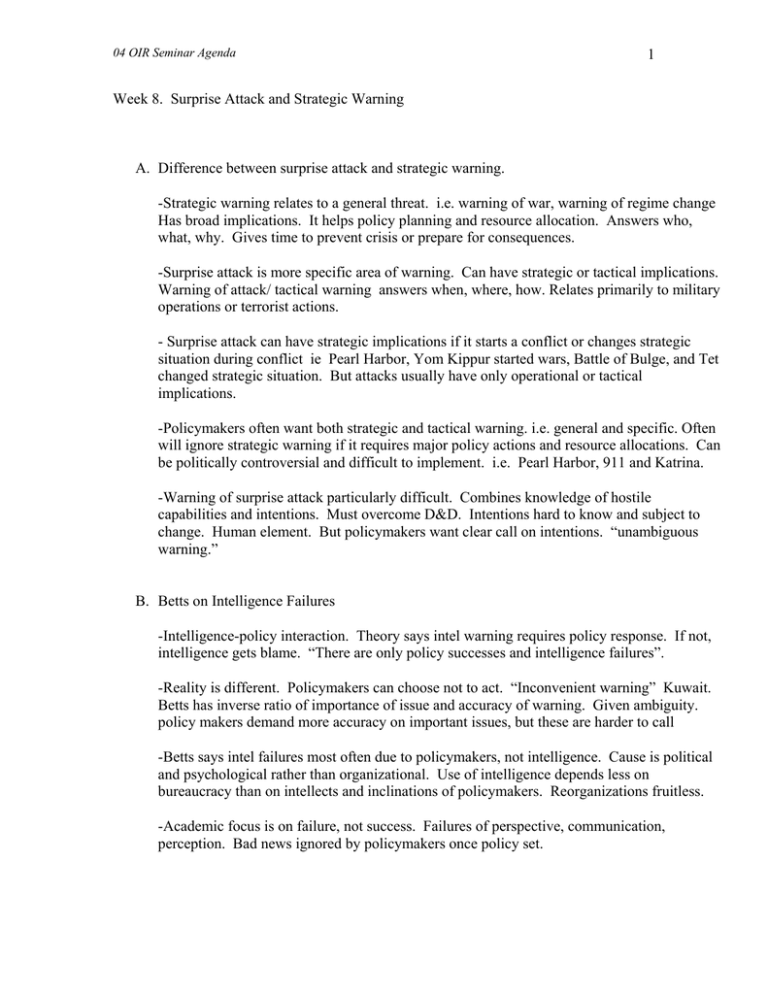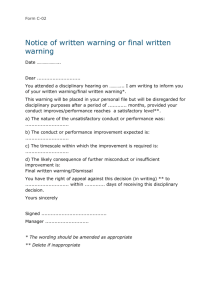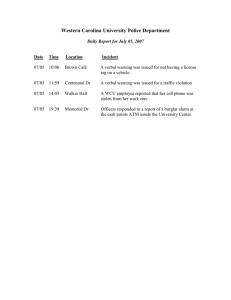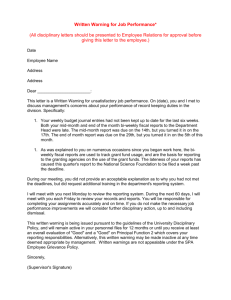1 Week 8. Surprise Attack and Strategic Warning
advertisement

04 OIR Seminar Agenda 1 Week 8. Surprise Attack and Strategic Warning A. Difference between surprise attack and strategic warning. -Strategic warning relates to a general threat. i.e. warning of war, warning of regime change Has broad implications. It helps policy planning and resource allocation. Answers who, what, why. Gives time to prevent crisis or prepare for consequences. -Surprise attack is more specific area of warning. Can have strategic or tactical implications. Warning of attack/ tactical warning answers when, where, how. Relates primarily to military operations or terrorist actions. - Surprise attack can have strategic implications if it starts a conflict or changes strategic situation during conflict ie Pearl Harbor, Yom Kippur started wars, Battle of Bulge, and Tet changed strategic situation. But attacks usually have only operational or tactical implications. -Policymakers often want both strategic and tactical warning. i.e. general and specific. Often will ignore strategic warning if it requires major policy actions and resource allocations. Can be politically controversial and difficult to implement. i.e. Pearl Harbor, 911 and Katrina. -Warning of surprise attack particularly difficult. Combines knowledge of hostile capabilities and intentions. Must overcome D&D. Intentions hard to know and subject to change. Human element. But policymakers want clear call on intentions. “unambiguous warning.” B. Betts on Intelligence Failures -Intelligence-policy interaction. Theory says intel warning requires policy response. If not, intelligence gets blame. “There are only policy successes and intelligence failures”. -Reality is different. Policymakers can choose not to act. “Inconvenient warning” Kuwait. Betts has inverse ratio of importance of issue and accuracy of warning. Given ambiguity. policy makers demand more accuracy on important issues, but these are harder to call -Betts says intel failures most often due to policymakers, not intelligence. Cause is political and psychological rather than organizational. Use of intelligence depends less on bureaucracy than on intellects and inclinations of policymakers. Reorganizations fruitless. -Academic focus is on failure, not success. Failures of perspective, communication, perception. Bad news ignored by policymakers once policy set. 04 OIR Seminar Agenda 2 -All solutions have problems. worse case=credibility, competition=confusion, centralization=failure, educated consumers=ideal DCI -Solution. Tolerance for disaster. “Intelligence failures not only inevitable, but natural. C. Strategic Warning Process -Need for a continuous process to monitor strategic threats, avoid ad hoc warnings. Helps to raise alert levels only when necessary, facilitates collection priorities, aids tactical warning. -Must involve entire IC, not just an independent effort. Done in National Intelligence Council (NIC). Gates study post-Iraq/Kuwait. -Strategic Watchlist addresses who, what, why. Critical elements include time frame, threat, likelihood, and potential impact. Reviewed on regular basis. Contains indicator lists. -Outreach to academia, open sources. Alternative scenarios and what if sessions. “low probability/high impact. -Failures include Kosovo, not Indian nuc test or 911. -Problems. Agencies want to do own warning. Policymakers want surprises.



